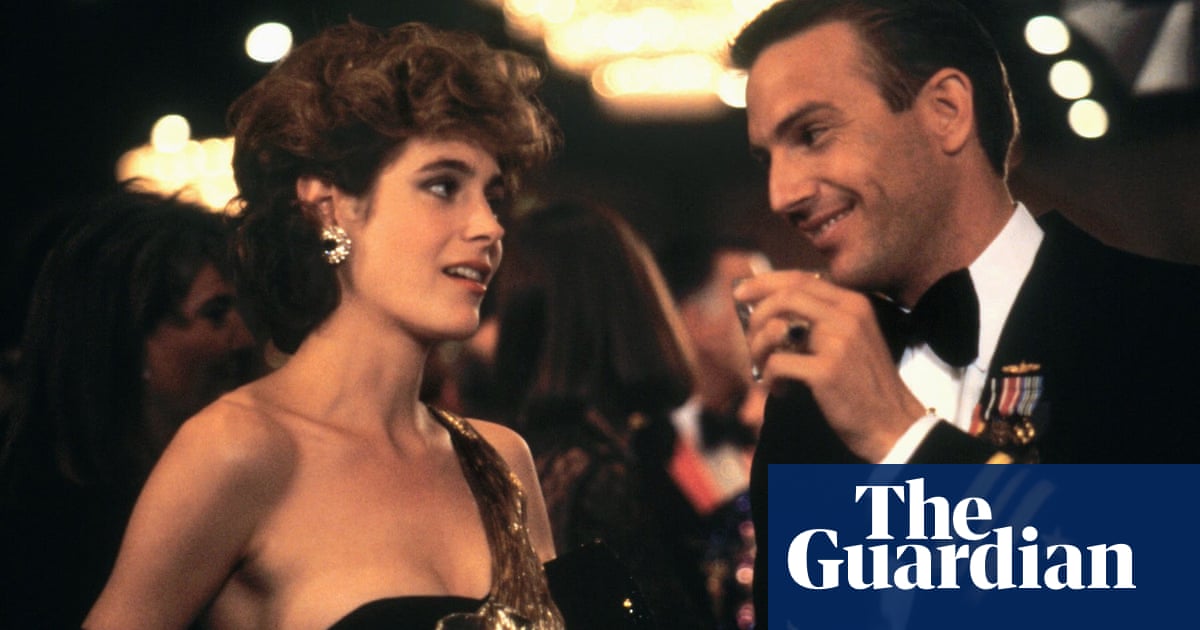In 1987 – right before he became the biggest movie star in the world with a five-year hot streak that included Field of Dreams, Dances with Wolves and The Bodyguard –Kevin Costnerheadlined two films that offered very different visions of America. The Untouchables assembles a group of plucky misfits to dole out frontier justice against those who would seek to extort the American dream – it’s brash, gung ho and morally transparent. A guaranteed classic.
Far more interesting, though, is No Way Out, Roger Donaldson’s 1987 political potboiler that’s equal parts pulpy spectacle and damning critique of the US project. Functioning as a bridge between the conspiracy flicks of the 70s and the erotic thrillers of the 90s, the film starts with a sex scene in the back of a limo (complete with a perfectly timed cutaway to the Washington Monument) and ends with an unforgettable flourish.
Adapted from Kenneth Fearing’s 1946 book The Big Clock (which also became a 1948 film), No Way Out transports its source novel’s action from a New York magazine house to the beating, bloody heart of cold war-era Washington.
A baby-faced Costner plays Lt Cmdr Tom Farrell, a navy golden boy summoned to DC to work for the secretary of defense, David Brice (RIP Gene Hackman, fully stepping into his late-career “craven bureaucrat” mode). Brice’s special counsel/whipping boy Scott Pritchard (Will Patton, chewing every piece of available scenery as a textbook 80s “evil gay”) wants Farrell to help them derail an overly expensive stealth submarine program (shades of Aukus).
The problem is that Farrell is in love with Brice’s kept woman, Susan Atwell (an infectiously delightful Sean Young, turning a potentially thankless role into the emotional centre of the movie). They happily continue their incredibly horny, incredibly doomed affair under Brice’s nose, until – spoiler warning – Brice learns that there’s another man in Atwell’s life and and lashes out.
This prompts Pritchard to go full Iago as he concocts a plan to get his boss off the hook. What if Atwell’s other lover was a long-rumoured Russian mole, codename: Yuri? What if the investigation into the attack on her became a Soviet witch-hunt instead? And what if their new dogsbody, Farrell, was in charge of the case? This is the ingenious narrative engine that propels the rest of the film: Farrell was at Atwell’s that night, right before Brice, making him the prime suspect in his own investigation. With all five walls of the Pentagon closing in on him, Farrell has to sabotage the manhunt and find the real villain before he’s framed.
Donaldson (a Ballarat boy done good!) is one of those uber-reliable journeyman directors Hollywood doesn’t make any more; guys you wouldn’t recognise if you passed them on the street but whose films you’ve watched a thousand times at 11pm on 7mate: Cocktail, Species, Dante’s Peak, Thirteen Days. No Way Out is highly competent entertainment but it also portrays a deeply corrupt US forever at war with both the world and itself – a nation where people are thrown under the bus at a moment’s notice to protect the vested interests of powerful men. Perhaps the only thing more impressive than No Way Out’s airtight thriller structure is its profoundly cynical view of US institutions – an outlook that feels almost radical in hindsight, given the chest-beating, self-congratulatory air of so much other Ronald Reagan-era Hollywood fare.
You can understand why The Untouchables went on to become a jewel in the crown of Costner’s filmography while No Way Out has sat there, largely forgotten, for close to 40 years. In 2025, though, it’s clear which version of the US rings truer, right down to a defense secretaryaccused of sexual assault(not to mention those damn submarines). Ten years ago I would have considered parts of No Way Out painfully outdated – today it feels almost too close to the bone.
No Way Out is streaming on Amazon Prime in Australia, the UK and the US. For more recommendations of what to stream in Australia,click here
